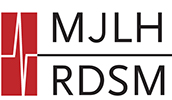On October 31, Dr. Janet Cleveland of CSSS de la Montagne presented an Oppenheimer Chair in Public International Law Seminar on the Impact of Cuts to the Interim Federal Health Program on Refugees.
While the cuts to the Interim Federal Health Program (IFHP) are not as severe as some have portrayed them, certain classes of refugee claimants will be left virtually without care. In addition, changes have made the program “excruciatingly technical,” and this “has a huge impact on access to healthcare.” According to Cleveland, doctors routinely demand upfront payment or refuse to see refugee claimants, because the new rules are so complex.
In one case an obstetrician demanded $3,000 to continue to care for a refugee claimant who was 36 weeks pregnant. Since she could not afford to pay this amount, she went to a community clinic and eventually received care from a midwife.
In another case, emergency room staff demanded that a 32-week-pregnant woman who had abdominal pains sign an undertaking to pay before they would screen her. Instead she left.
Before June 30, 2012, all resettled refugees and refugee claimants received the same coverage – what is now called Expanded Health-Care Coverage. Now three types of coverage exist: Expanded Health-Care Coverage, Health-Care Coverage, and Public Health or Public Safety Health-Care Coverage.
Expanded Health-Care Coverage includes all medical, diagnostic and hospital services. It also covers psychotherapy, vision and dental benefits, and medications and medical devices. It is granted to government assisted refugees (GARs) until they receive provincial coverage and to victims of human trafficking who have a temporary resident permit.
Health-Care Coverage includes medical, diagnostic and hospital services except elective surgery, rehabilitation, and long term care. It does not cover medication, unless it is for diseases that are a risk to the public or conditions that are a risk to public safety, such as psychotic aggression. This coverage is granted to refugee claimants and privately sponsored refugees (PSRs).
Public Health or Public Safety Health-Care Coverage does not cover medical services or medications unless they are to treat a condition that is a risk to public health or safety. At present, this limited coverage is only granted to refused refugee claimants from the final rejection of their claim until they are removed or deported.
However, the government will soon be grouping refugee claimants into two groups: those from Designated Countries of Origin (DCOs) and those not from DCOs. DCOs are counties that the Ministry of Citizenship and Immigration deems safe or stable and are therefore unlikely to produce refugees. Under the new DCO policy, refugee claimants from non-DCOs would continue to receive Health-Care Coverage, but refugee claimants from DCOs would only receive Public Health or Public Safety Health-Care.
DCO refugee claimants would thus receive only an extremely basic coverage – and this only because they are deemed a threat to Canadians’ health or safety. “This is very much an ‘us versus them mentality,’” said Cleveland. “If they’re dangerous to us, the government pays for it, but if they’re a danger to themselves – for example, they’re suicidal – it doesn’t because it only affects them.”
The provinces could begin covering individuals whose IFHP coverage is lacking, since early treatment could cost less than treating a condition that could have been prevented or mitigated. However, Cleveland noted that this would be difficult to sell politically, as provincial budgets are already tight and the political fallout could be devastating. In addition, the IFHP only costs about $660 per person annually, according to Cleveland – much lower than the per person cost of provincial health coverage.
Nevertheless, Québec has quietly established a system to fill in the gaps of IFHP coverage. It provides more complete coverage to refugee claimants, although the DCO policy’s impact on that coverage is still unknown. It also seems to cover refused claimants until the date set for their removal or the expiry of their IFHP certificate, but again the policy is not clear.
Québec has also begun to pay doctors for treating refugee claimants if their invoice is rejected by the IFHP insurer. Yet this makes for a long and uncertain process, and, according to Cleveland, still causes doctors to turn refugee claimants away.

